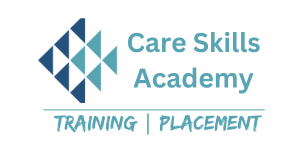The demand for skilled technicians in AC repair is on the rise, driven by a growing reliance on climate control systems across homes, businesses, and industrial spaces. An AC Repairing Course offers comprehensive training that equips students with essential skills in diagnosing, repairing, and maintaining air conditioning systems. This course is ideal for individuals interested in a stable, hands-on career in HVAC (Heating, Ventilation, and Air Conditioning). Here, we’ll explore the components of the course, the skills you’ll gain, and the career opportunities it opens.
Why Enroll in an AC Repairing Course?
Air conditioning repair requires specialized knowledge and technical skill, blending understanding of electrical systems, refrigerants, airflow, and environmental safety. With temperatures rising worldwide and increased emphasis on indoor air quality, AC repair professionals are essential. This course provides students with the technical expertise and hands-on experience needed to work in this field. Whether you’re just starting out or looking to specialize further, an AC Repairing Course is a smart investment in a high-demand career.
What You Will Learn in an AC Repairing Course
A well-rounded AC Repairing Course covers both theoretical knowledge and practical applications. Key topics generally include:
- Basics of Refrigeration and Air Conditioning: The course starts with a foundation in refrigeration principles, explaining how AC units cool air through heat transfer. Students learn the basic components, such as compressors, condensers, and evaporators, and how these parts work together to regulate indoor temperatures.
- Electrical Fundamentals and Wiring: Since AC systems require electrical components to operate, the course covers the essentials of electricity, wiring, and circuitry. This includes understanding how to read wiring diagrams, work with electrical components safely, and troubleshoot electrical problems in HVAC systems.
- Refrigerants and Environmental Safety: Knowledge of refrigerants and their role in cooling is crucial for HVAC work. The course addresses different types of refrigerants, refrigerant handling, and environmental laws governing refrigerant disposal. Proper handling ensures safety and compliance with regulations to protect the environment.
- Installation and Maintenance of AC Units: Students learn step-by-step installation procedures for various AC systems, from window and split units to centralized systems. Maintenance is equally important, as regular servicing can prevent common issues and extend the life of an AC unit. This includes tasks like cleaning filters, checking refrigerant levels, and inspecting coils.
- Diagnostics and Troubleshooting: Diagnosing issues is a core aspect of AC repair. The course teaches students how to interpret fault codes, troubleshoot cooling issues, and identify problems in components like the compressor or thermostat. Using diagnostic tools, students practice identifying the root cause of system malfunctions.
- Advanced Topics and New Technologies: The HVAC field is evolving with advancements in energy-efficient technologies and smart systems. Some courses include modules on inverter AC technology, ductless mini-split systems, and smart AC units that allow remote operation, preparing students to work on cutting-edge HVAC systems.
Hands-On Training and Real-World Application
One of the key benefits of an AC Repairing Course is hands-on training. Theory is reinforced through practical exercises where students work on real AC units under the guidance of experienced instructors. This real-world experience is invaluable for learning to handle tools, manage different AC models, and apply diagnostic skills in a safe, controlled environment. Field training or internships are sometimes part of the course, allowing students to work directly in the field, enhancing both confidence and technical ability.
Career Opportunities After Completing the AC Repairing Course
The HVAC industry offers a range of career paths for certified AC technicians. Some of the common job roles include:
- HVAC Technician: As an HVAC technician, you will work with residential or commercial AC systems, installing, maintaining, and repairing them. This role is ideal for those looking for a stable career with consistent demand.
- Maintenance Technician: Maintenance technicians focus on preventative care, ensuring AC systems function efficiently. Regular checks, filter replacements, and minor repairs are the main responsibilities, suitable for those interested in routine maintenance work.
- Refrigeration Mechanic: Specializing in refrigeration allows you to work with large cooling systems, such as those used in commercial spaces, hospitals, and industries. This role requires specialized knowledge of large-scale systems and is typically higher paying.
- Freelance Technician: For those who prefer flexibility, working as a freelance technician allows you to set your own hours, build a client base, and offer specialized services. Many freelance technicians go on to establish their own HVAC businesses.
- HVAC Consultant or Trainer: With experience, some professionals transition into consulting or training roles, working with companies to improve HVAC efficiency or training new technicians entering the field.
Why an AC Repairing Course is a Great Career Investment
As climate change heightens the demand for air conditioning, the need for skilled AC repair technicians is expected to grow. An AC Repairing Course provides a practical, career-focused education that can be completed in a relatively short time, often a few months, compared to a traditional degree. Additionally, HVAC work offers good earning potential and job security, as heating and cooling systems are essential services that require consistent maintenance and repair.
The skills gained through this course are also versatile, enabling graduates to work in various environments, from residential to commercial. Furthermore, with advancements in eco-friendly refrigerants and energy-efficient systems, AC repair technicians with up-to-date training are well-positioned for future growth in this field.
Conclusion
An AC Repairing Course provides essential skills in one of today’s most vital trades. From understanding refrigeration principles to mastering diagnostics and repair, this course equips students with knowledge that’s in high demand. Graduates enter a field with varied career opportunities, solid earning potential, and a positive job outlook. If you’re interested in hands-on work, a stable career, and becoming part of the HVAC industry, an AC Repairing Course is an excellent path to take.

